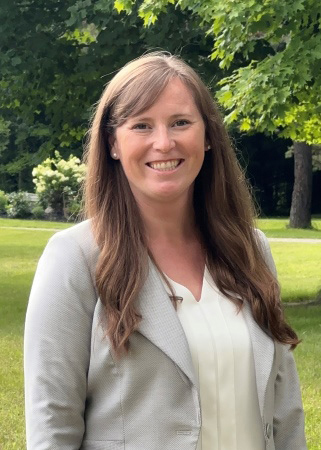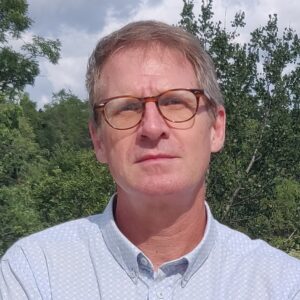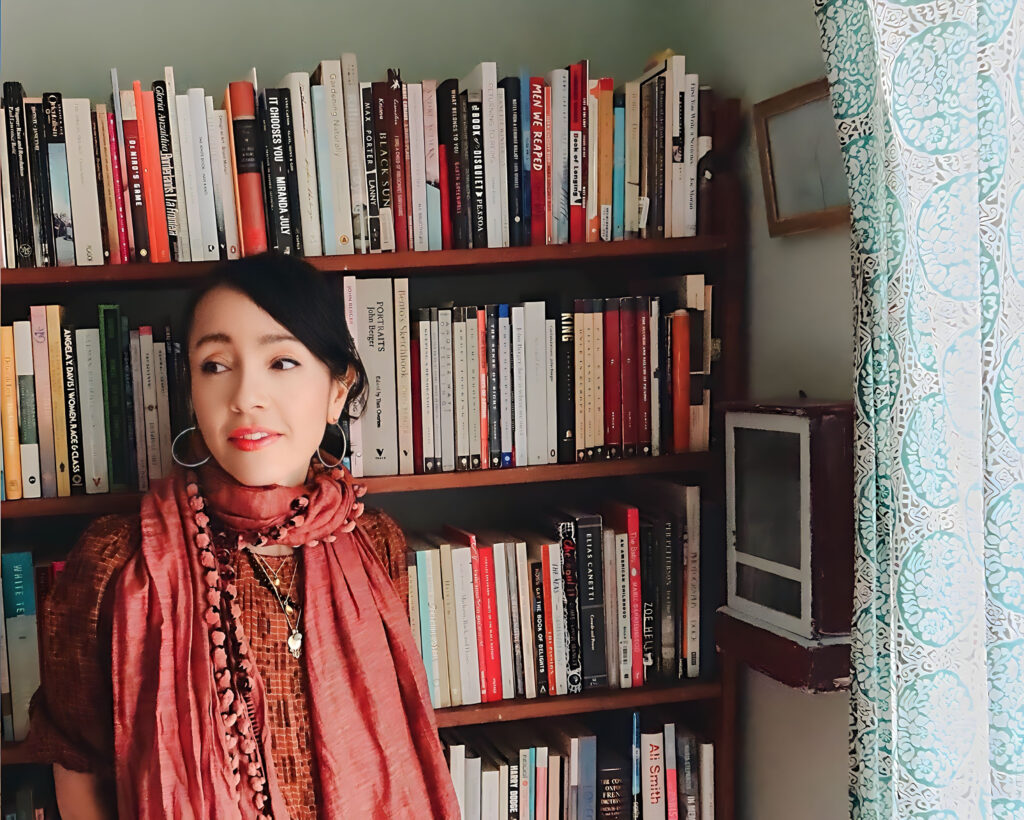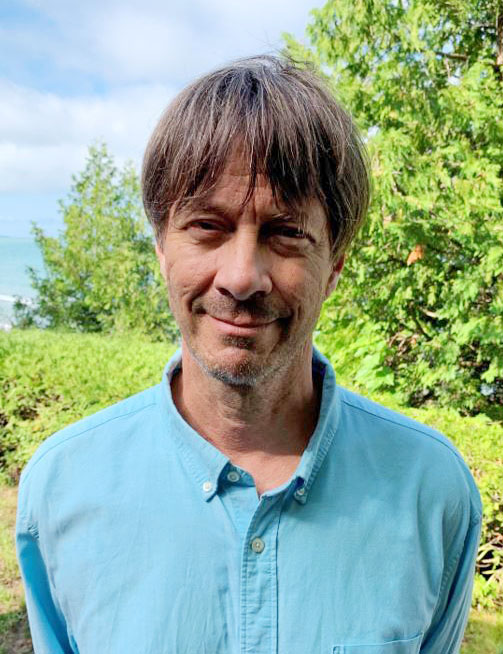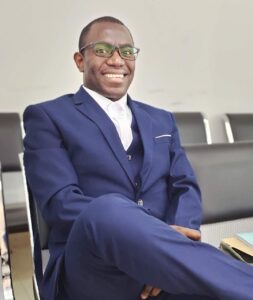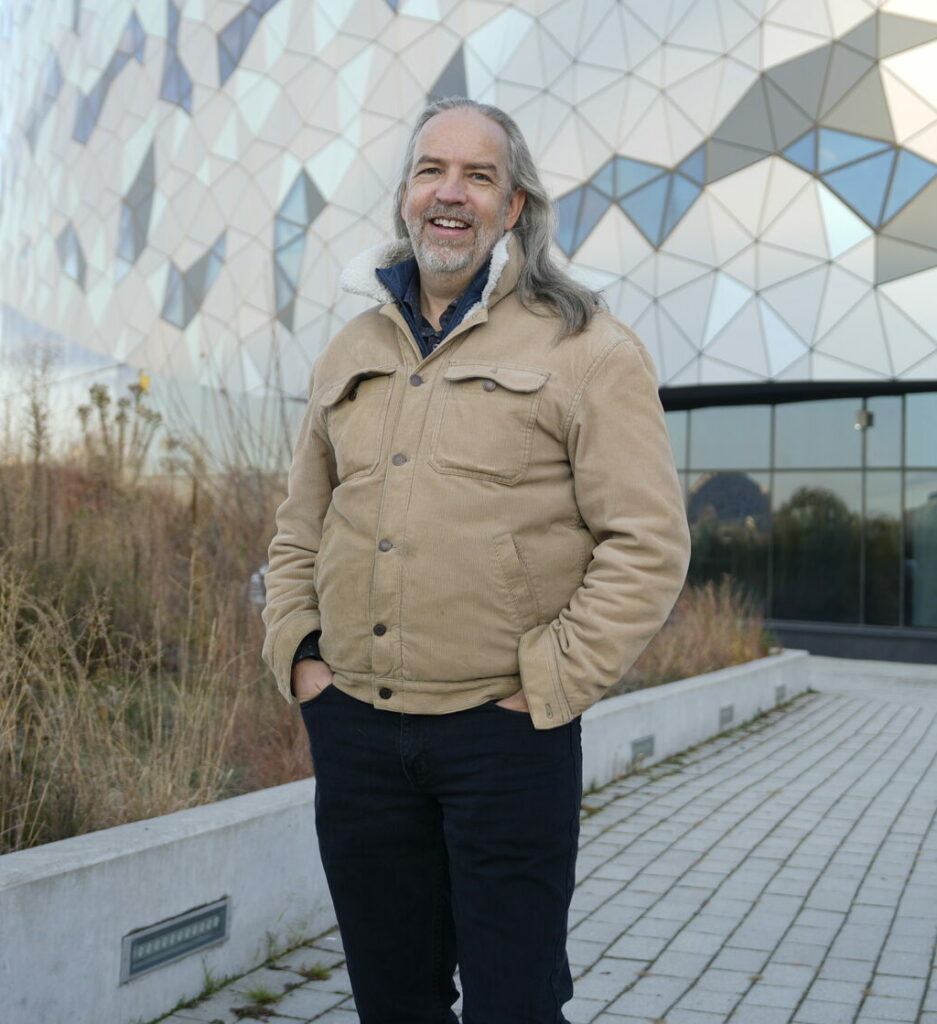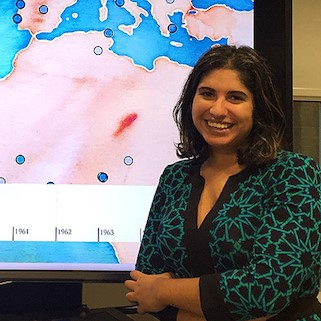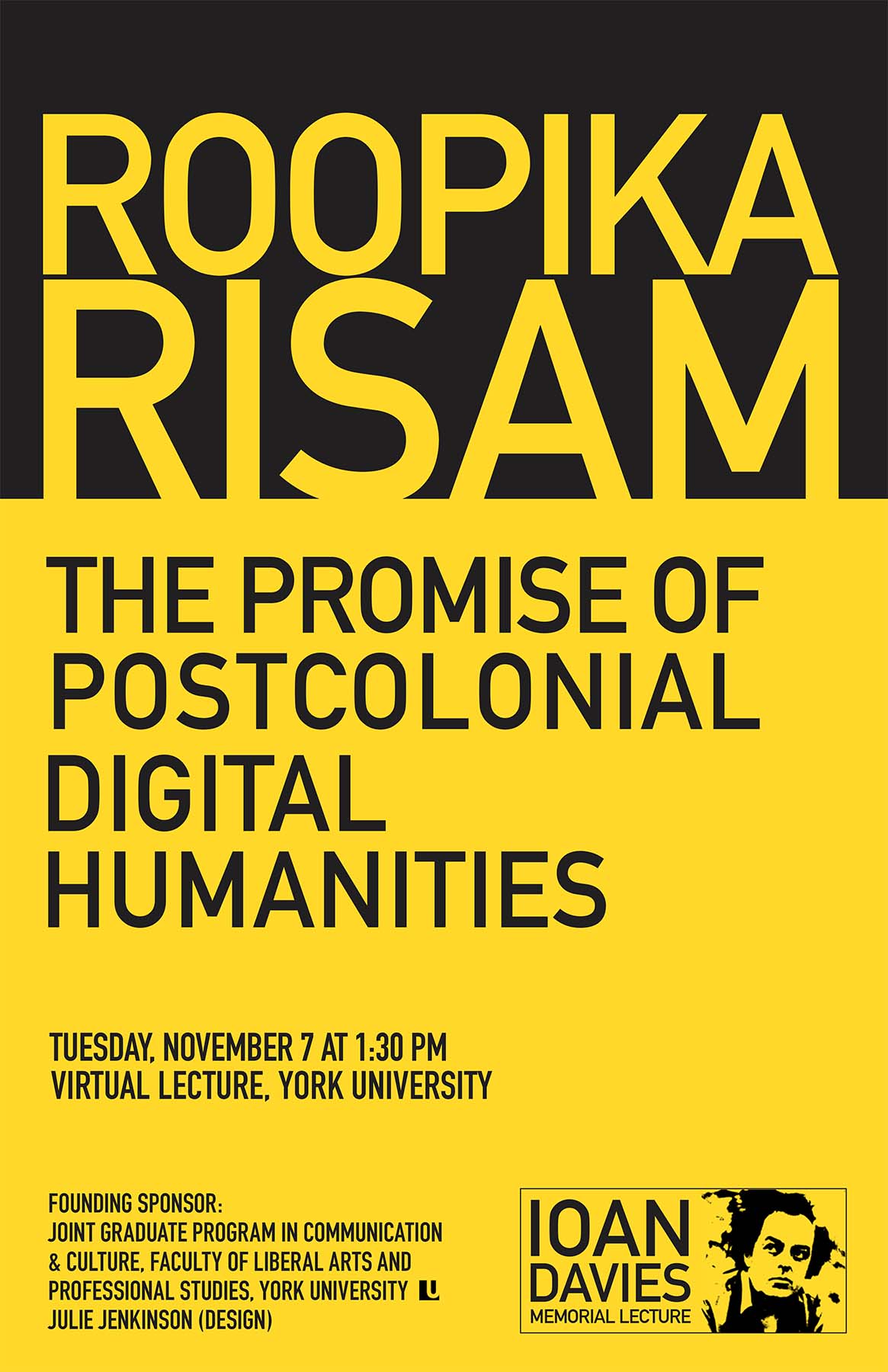By Lindsay MacAdam, communications officer, YFile
Recent York University graduate Vivian Guido (MES ’23) is screening her new documentary, Turning Tides: Sustainability Measures for Shark Conservation, on York University’s Keele Campus on Dec. 15, from 7 to 9 p.m. in the Nat Taylor Cinema. Part of her master’s program, the film aims to increase and promote ocean literacy and environmental education, informing viewers of the many ways climate change impacts the health of oceans and communities – and giving them a new perspective on sharks in the process.
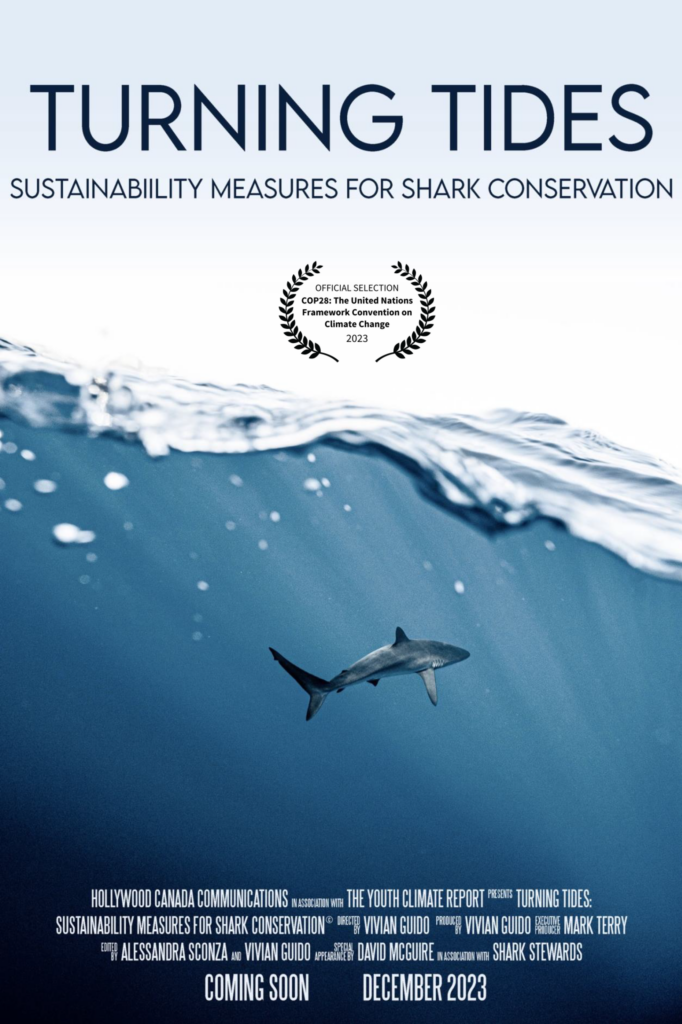
Selected to be shown at several events throughout the 2023 United Nations Climate Change Conference (COP28), wrapping up early next week in Dubai, Turning Tides explores the progress of United Nations Sustainable Development Goal (SDG) 14: Life Below Water. Following the 10 targets of SDG 14, it uses sharks as an indicator of ocean health and builds upon past work of marine biologist David McGuire to determine current areas of success and opportunities for improvement in marine conservation.
“We were really grateful that the United Nations (UN) wanted to show the film,” says Guido. “And I think if any legislation or policy change can come from that, that would be even more exciting.”
Interestingly, Guido began her post-secondary studies in fashion design – not science or environmental studies – with the hopes of focusing on sustainable apparel and tackling textile waste. To her surprise, she was met with roadblocks. “No one really wanted to talk about it,” she explains. “And in the fashion industry, it’s like this big, hidden secret. Everyone knows it’s bad, but no one cares, so I wanted to see if I could address sustainability in a different way.”
She worked in fashion for a couple of years before deciding to pivot – first, becoming a scuba diver, then taking a two-year diploma in environmental sustainability at Lakehead University and finally enrolling in York’s master’s program in environmental studies. The graduate program provided Guido with many experiential learning opportunities that served as the basis of her research for Turning Tides, including a stint at a non-governmental organization called Shark Stewards, where her interest in marine biology, ocean conservation – and sharks, specifically – flourished.
It took Guido about six months to put the film together, with the help of a video editor and a supervisor, York Adjunct Professor Mark Terry. She credits Terry, a passionate filmmaker himself, for helping craft her documentary into a more professional style that could capture the attention of a global organization like the UN. Her other supervisor, Associate Professor Leesa Fawcett, provided critical support in the research phase of the project.
As for what’s next for Guido and her film, her short-term plan is to submit it to film festivals and pitch it to schools as an educational resource.
“If there’s an opportunity to make more films, if there’s an opportunity to conduct more research, I would be extremely interested in that,” she says, “but expanding the reach of the film and the knowledge it provides is our top priority.”
Pre-registration for the film screening is required. To RSVP, fill out this online form by Wednesday, Dec. 13. For more information, see the full event listing.






